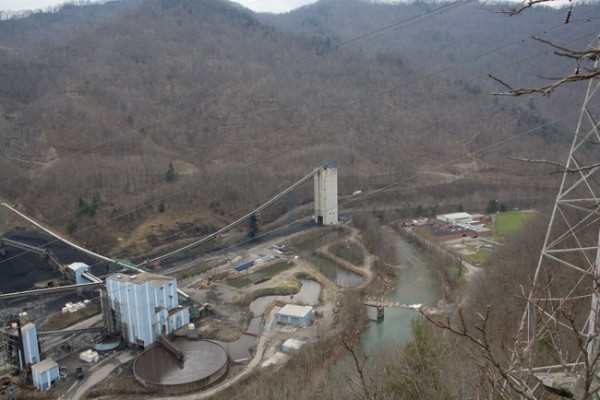West Virginia Coal Miners’ Group Urges Tennessee Boycott
Published: July 20, 2009
ATLANTA — Coal miners and their employers in West Virginia are encouraging a boycott of travel to Tennessee in retaliation for Senator Lamar Alexander’s support of a federal ban on a type of mining known as mountaintop removal.
The idea for the boycott surfaced after a large group of opponents from West Virginia attended a Congressional committee hearing in late June on a bill that would forbid the pollution of streams with debris from surface mining techniques like mountaintop removal, said David Moss, director of governmental affairs for the Kentucky Coal Association.
Mr. Alexander of Tennessee is the only Republican to co-sponsor the bill, the Appalachia Restoration Act, and an official from the Tennessee Department of Environment and Conservation testified in its favor.
In response, two mining companies canceled their annual company picnics at Dollywood, Dolly Parton’s amusement park in the Great Smoky Mountains of Tennessee, according to a letter from Richard K. Phillips, an executive of Coal-Mac in West Virginia. A mining equipment company in Kentucky urged its employees not to visit Tennessee. A miner support organization, Citizens for Coal, chimed in. The letter was first reported by West Virginia Public Broadcasting.
In his letter to several chambers of commerce in Tennessee, Mr. Phillips, the Coal-Mac executive, said 80 percent of Coal-Mac’s 300 employees traveled to Tennessee monthly, and that the cancellation of two company picnics would cost Tennessee more than 3,000 visitors.
“If you want our industry’s business, we suggest you let your representatives know that the industry they are trying to destroy is a major source of your tourism money,” he wrote.
Coal mining is a relatively small industry in Tennessee, generating $67 million compared with tourism’s $14.2 billion. Mr. Alexander brushed off the boycott, saying, “Every year, millions of tourists come to Tennessee and spend millions of dollars to see our scenic mountaintops, not to see mountains whose tops have been blown off and dumped into streams.”
As concern over the polluting effects of mountaintop removal has mounted, miners feel cornered, said Mr. Moss, of the coal industry group, adding that thousands of jobs are at stake.
“This has become such a hotbed issue that people are getting very worried,” he said. “There was real angst over Senator Alexander when he first sponsored the bill.”
Still, one company, TECO Coal, backed away from its initial support of the boycott, issuing a statement that read, “We regret our previous action, which was an emotional response that doesn’t benefit our 1,200 employees, the eastern Kentucky communities we support, the environment we work to protect or our neighbors in Tennessee.”

